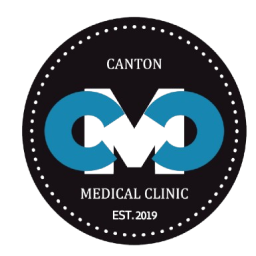Patient Education: Why Learning About Health Improves Outcomes

Learn how patient education improves health outcomes, encourages preventive care, and empowers patients to manage chronic conditions effectively.

Patient education plays a critical role in achieving better health outcomes. When patients understand their medical conditions, treatment options, and preventive care strategies, they are more likely to make informed decisions and actively participate in their care. Education empowers individuals to take control of their health, improves adherence to medical advice, and can even reduce the risk of complications and hospitalizations.
The Role of Patient Education
Patient education involves providing individuals with the knowledge and resources they need to manage their health effectively. This includes understanding chronic conditions, recognizing symptoms, learning about medications, and adopting lifestyle changes that promote well-being. Education can be delivered in various ways, such as one-on-one consultations, informational brochures, workshops, online resources, and group classes.
Healthcare providers play a crucial role in guiding patients through accurate and reliable information. By offering clear explanations and answering questions, providers help patients feel confident in managing their health. Informed patients are better equipped to recognize warning signs early, adhere to treatment plans, and communicate effectively with their care team.
Benefits of Patient Education
Improved Treatment Adherence: Patients who understand why a treatment is necessary and how it works are more likely to follow medical recommendations. This includes taking medications as prescribed, attending follow-up appointments, and implementing lifestyle changes.
Empowerment and Confidence: Knowledge gives patients a sense of control over their health. When individuals understand their conditions, they are less likely to feel anxious or overwhelmed, leading to better mental well-being.
Prevention and Early Detection: Educated patients are more aware of preventive measures such as vaccinations, screenings, and healthy habits. They can recognize early symptoms of complications and seek care promptly, which can prevent serious health issues.
Enhanced Communication: Patient education encourages open communication between patients and healthcare providers. When patients are informed, they can ask meaningful questions, clarify instructions, and actively participate in shared decision-making.
Cost-Effective Care: Understanding health conditions and preventive measures can reduce the need for emergency care and hospitalizations. Patients who manage chronic conditions effectively often experience fewer complications, leading to lower overall healthcare costs.
How to Promote Patient Education
Healthcare providers can promote patient education through multiple strategies:
- Providing clear and concise explanations during appointments
- Offering written materials and resources that patients can review at home
- Hosting workshops or seminars on common health topics
- Using online portals to share educational videos, articles, and guides
- Encouraging patients to ask questions and participate in decision-making
Patients can also take an active role by seeking credible information, tracking their health data, and preparing questions for their healthcare providers. A collaborative approach ensures that education is practical and tailored to individual needs.
The Impact on Chronic Disease Management
Patient education is particularly important for managing chronic conditions such as diabetes, hypertension, and heart disease. Understanding how lifestyle choices, medications, and monitoring impact their condition helps patients take proactive steps to manage symptoms and prevent complications. Studies have shown that patients who receive proper education experience better blood sugar control, lower blood pressure, and improved overall outcomes.
Building a Healthier Future Through Knowledge
Learning about health is a lifelong process that benefits both patients and the healthcare system. Educated patients are better advocates for their own health, make informed decisions, and engage in preventive care that enhances long-term wellness. Patient education not only improves individual outcomes but also contributes to a healthier community overall.
Take the First Step Toward Informed Health
Patient education is the foundation of effective healthcare. At Canton Medical Clinic, we are committed to providing our patients with the knowledge and support they need to manage their health confidently. Schedule your appointment today to learn more about Family Medicine in Westland, MI, and take an active role in improving your long-term well-being.
< Return to Blog